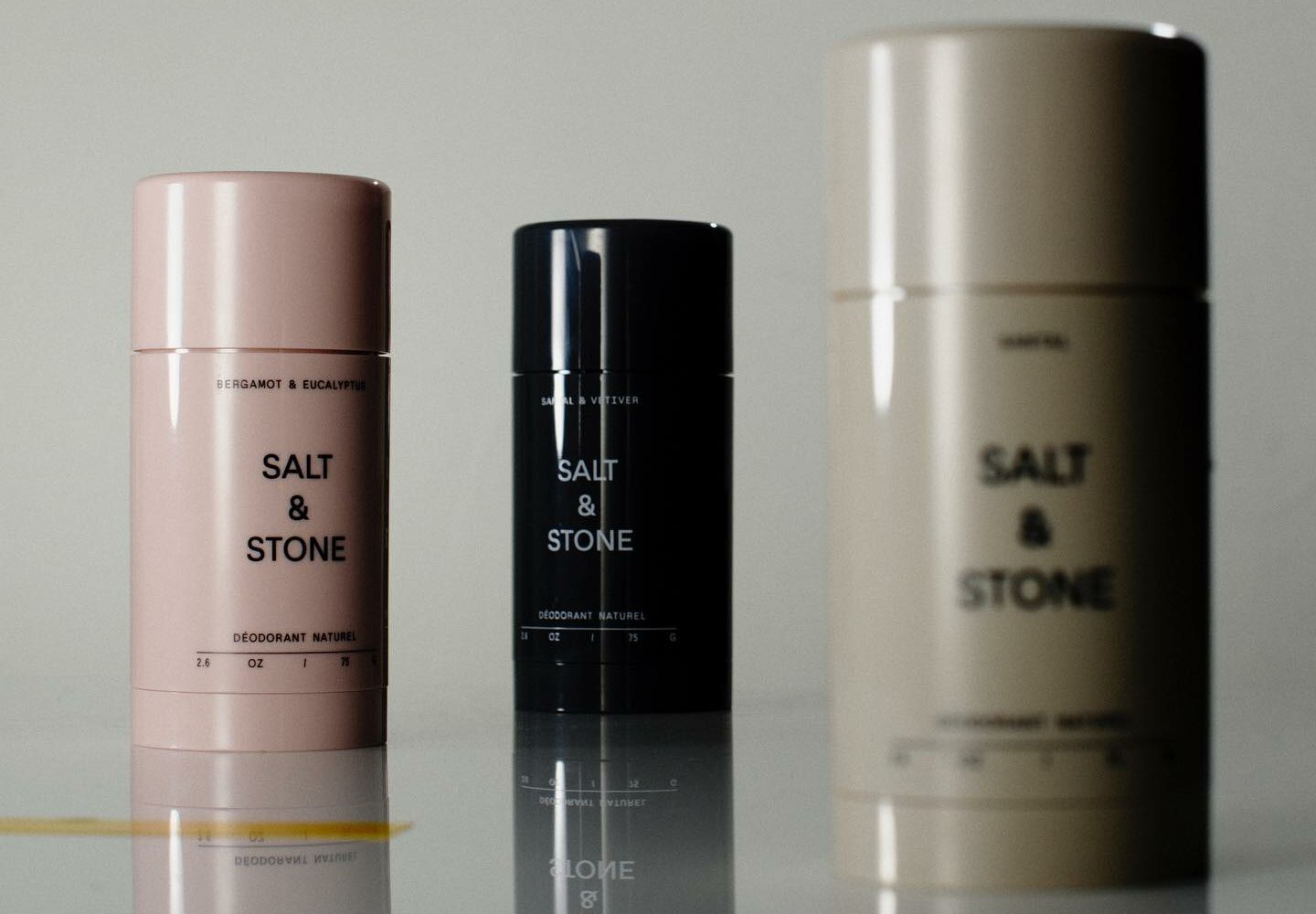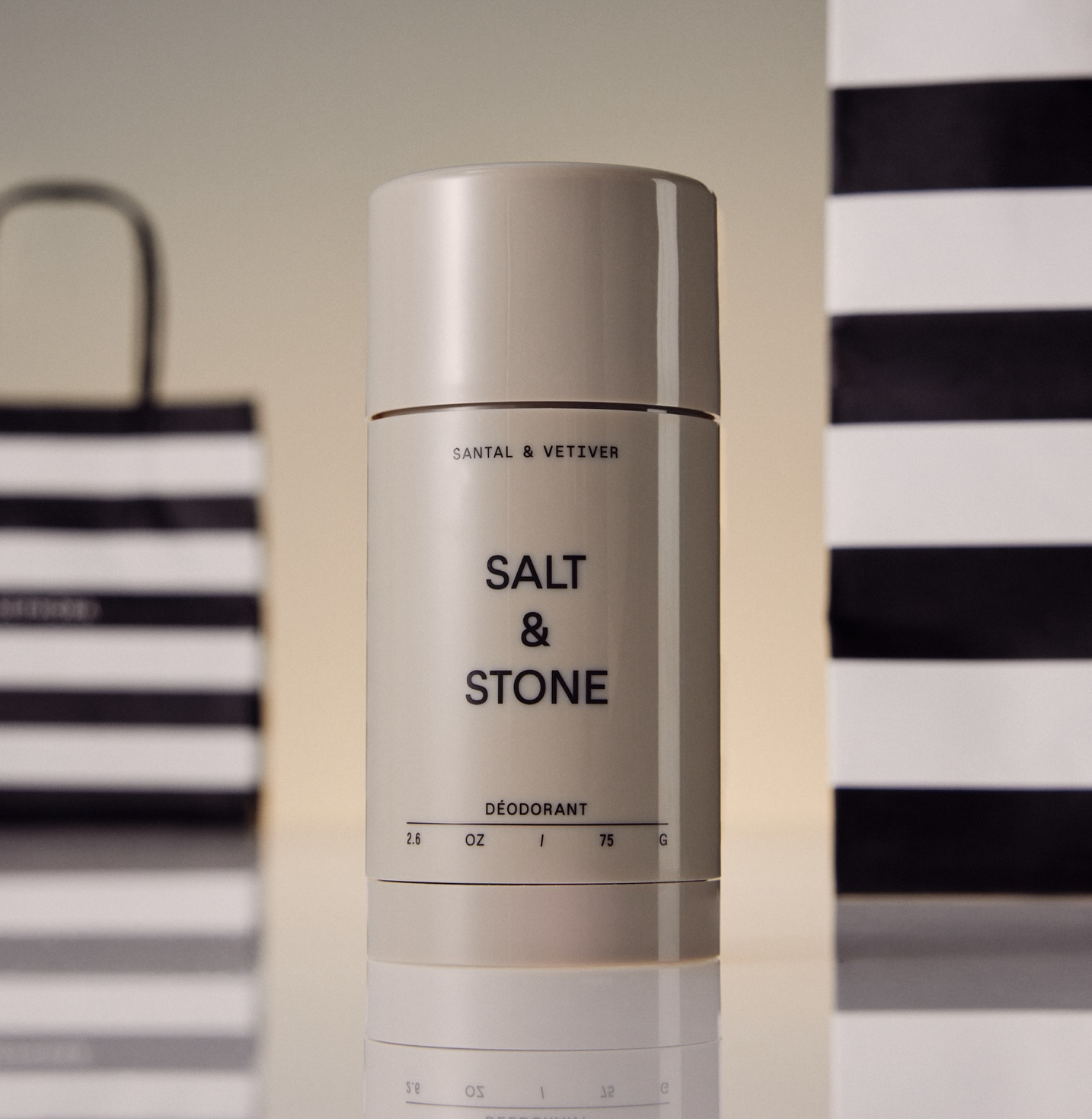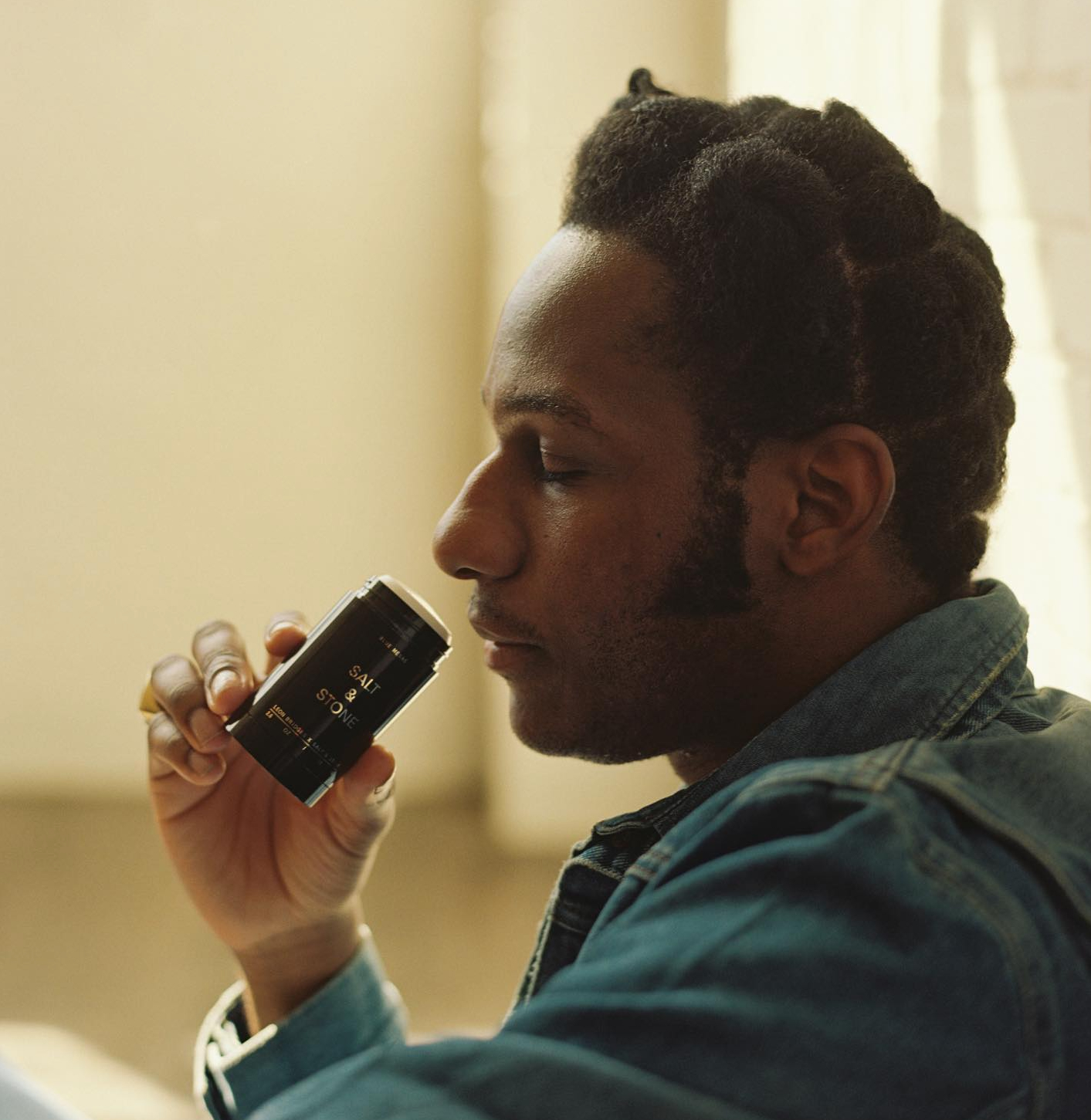
Salt & Stone Wants To Be Sephora’s Deodorant Leader
Salt & Stone is poised to shake up the deodorant category at Sephora.
The brand is launching online at the beauty specialty retailer today in Canada and the United States, where it’s entering the full chain of about 100 doors immediately, including 25 in endcaps, and nearly 290 doors on March 1 in The Next Big Thing displays, respectively. Sephora is carrying Salt & Stone’s deodorants, body washes, body lotions, hand creams and body mists priced from $20 to $56 across four fragrance varieties: Bergamot & Hinoki, Santal & Vetiver, Neroli & Basil and Black Rose & Oud.
Sephora offers several deodorants from brands the likes of Donna Karan, Sol de Janeiro, Kosas, Drunk Elephant, Alo, Caudalie and By Rosie Jane, but it hasn’t had a brand that specializes in deodorant rather than sells it as an ancillary product. “We can come in and be the leader in the category for them,” says founder Nima Jalali. “In every single retail partner we are in, we are the No. 1 deodorant partner and often the No. 1 body wash partner, too.”
Salt & Stone has slowly built up its retail distribution. After launching in direct-to-consumer distribution about six years ago, it assembled a network of boutique stockists before landing at larger retailers roughly two years ago, notably Cos Bar, Holt Renfrew, Neiman Marcus and Nordstrom Canada. It’s still carried by some 150 boutiques in the U.S. and Canada.

In 2023, Salt & Stone broke into Sephora abroad in the United Kingdom, Australia and the Southeast Asia region. Although Nordstrom ended its Canadian operations last year, it placed Salt & Stone online in the U.S. about three months ago, and the brand is rolling out chain-wide at the department store retailer in April.
At the outset of the brand, Jalali says, “We focused on digital and how we show up, and I always believed that retail partners would come to us and that proved to be the case. We believed that, if we stayed the course and stayed to true to the original mission and stayed to true to the brand, eventually we would keep growing and get in with bigger retailers.”
While Salt & Stone has increased its retail reach, its DTC channel currently drives about 80% of its sales. Both last year and the year before, its sales multiplied 4X. Industry sources project that Salt & Stone is on track to generate between $65 million and $80 million in 2024 revenues.
“I know a lot of people are saying you can’t do DTC profitably, but we are profitable on first purchase. We have been profitable since day one, and we have never needed to raise money,” says Jalali, who notes Salt & Stone has taken an undisclosed amount of funding from strategic partners. “I am so proud that we are able to be a DTC brand and be profitable doing it. We always wanted to be a DTC brand plus Sephora and other influential accounts.”
“In every single retail partner we are in, we are the No. 1 deodorant partner and often the No. 1 body wash partner, too.”
To support its Sephora launch, Salt & Stone will be directing traffic from its advertising on Meta and TikTok to the chain, and it’s employing a field sales team internally in Canada and via an agency in the U.S. In its ads, the brand has been increasingly trying to incorporate men to expand its pool of male customers. At the moment, its customer breakdown is 70% female and 30% male, but it’s aiming to achieve parity. Salt & Stone’s relatively large base of male customers compared to beauty brands generally has been attractive to retailers.
A former professional snowboarder, Jalali began to pay increased attention to what he was putting on his skin after a knee injury and sought natural, better-for-you products, but he didn’t find products that met his standards for high performance and aesthetics. Salt & Stone, which has a minimal look that can’t be pigeonholed to a specific gender, started with sunscreen, a category it’s mostly phasing out due to the strong consumer appetite for its body care products.
In post-purchase surveys, Salt & Stone has discovered that its customers are trading up to it from mass-market brands such as Secret, Dove and Native. Along with its deodorants’ capacity to keep stink at bay, Jalali says the brand’s aluminum-free clean formulas are a draw for consumers. Among the ingredients Salt & Stone uses are tapioca starch, magnesium hydroxide, arrowroot powder, probiotics, hyaluronic acid, seaweed extracts and sodium bicarbonate in its extra-strength option.
“We should all question the ingredients that our products have if they are going to sit on our skin all day, I certainly do,” says Jalali. “The personal research I have done on aluminum makes me not want to take the chance. We have found a formula that I believe is superior to all deodorants, even to aluminum-based deodorants, so there’s no reason to have aluminum in our formula.”

Salt & Stone’s bestsellers are its deodorant in Santal & Vetiver, body lotion in Santal & Vetiver, and body wash in Bergamot & Hinoki. It’s adding a body mist to its assortment in March. “There is not a day that goes by that we don’t get requests for body mist,” says Jalali. “We think that it’s going to be a really key part of our business, and one of our bestsellers out of the gate.”
According to market research information provider Statista, the U.S. deodorant market is forecast to reach nearly $26.64 billion revenues this year and advance at a compound annual growth rate of 3.51% through 2028. Market research firm Grand View Research estimates the global body care segment will accelerate at a CAGR of almost 6% through 2028. It was valued at $26.93 billion in 2021.
“Body care has been a slept-on category, so I think it’s just going to grow. The opportunity is huge,” says Jalali. “Ourselves and brands like Nécessaire and Soft Services are positioned nicely to become the next generation of new and exciting brands in the whole beauty space.”





Leave a Reply
You must be logged in to post a comment.